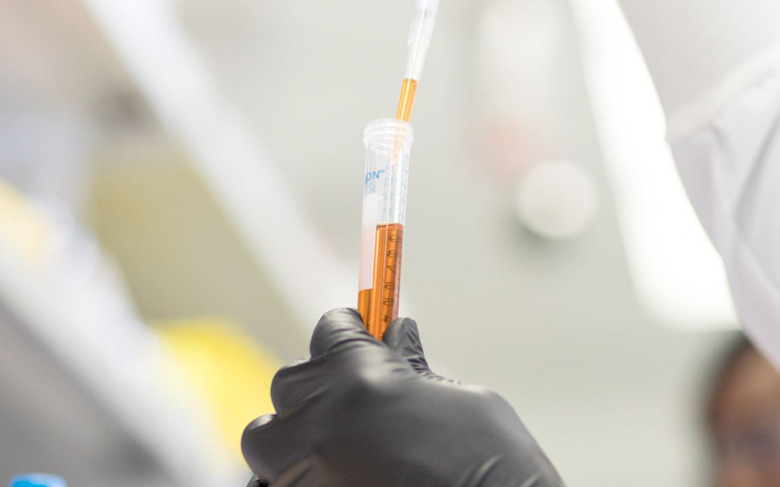J&J's one-shot COVID-19 vaccine is under blood clot investigation
Johnson & Johnson's single-shot COVID-19 vaccine is being investigated by the European Medicines Agency over blood clot concerns, the second coronavirus vaccine to fall under the microscope for potentially fatal side-effects. The EMA's safety committee, PRAC, recommended continued use of the University fo Oxford and AstraZeneca's vaccine earlier this week, though required possible blood issues be added to the list of rare risks.
At the time, the EMA said that though evidence suggested that some individuals – particularly women under 60 years of age – could be more susceptible to unusual blood clots with low blood platelets after taking Vaxzevria, the "overall benefit-risk remains positive." Specific risk factors have not been confirmed yet, but the EMA advised healthcare providers to "remain aware" of the potential for such clots in the two weeks after vaccination.
Now, attention has turned to another COVID-19 vaccine. Johnson & Johnson's one-shot COVID-19 Vaccine Janssen is not currently in use in Europe, only in the US under the FDA's emergency use authorization. It was authorized by the European Union (EU) on March 11, the EMA points out, with a roll-out initially expected to begin within the next few weeks.

However, now there are questions about whether it, too, could lead to strange blood clot behaviors. "Four serious cases of unusual blood clots with low blood platelets have been reported post-vaccination with COVID-19 Vaccine Janssen," the EMA confirmed today. "One case occurred in a clinical trial and three cases occurred during the vaccine rollout in the USA. One of them was fatal."
The thromboembolic events involve a blood clot forming in a vessel, and then breaking loose. It's carried along the blood stream and can plug another vessel elsewhere in the body. Depending on where that happens, it could lead to strokes, pulmonary embolisms of the lungs, or problems with the limbs or more.
While there are several COVID-19 vaccines currently being administered around the world, the J&J Janssen vaccine differs in that it only requires a single injection. Others – such as Moderna and Pfizer's drugs, which are also being used in the US – need two doses for maximum efficiency, typically separated by 3-4 weeks.
Currently, the EMA says, the PRAC is reviewing a so-called "safety signal" about the potential issue. That refers to a new or known adverse event, possibly caused by a medicine, and into which further investigation is required. At this stage, the EMA points out, "it is currently not clear whether there is a causal association between vaccination with COVID-19 Vaccine Janssen and these conditions."
The PRAC is looking into the four cases reported, and will weigh whether further regulatory action should be appropriate. That, the Agency says, usually involves an update to the product information; it's highly unlikely that EU authorization of COVID-19 Vaccine Janssen will be revoked. Instead, as we've seen with Vaxzevria, it's more likely that a new side effect warning would be added, if deemed necessary, for healthcare providers to remain aware of.
